DECODIT Project results will be demonstrated in four European countries that are very diverse in terms of building characteristics, cultural and regulatory frameworks, climate conditions, economic capabilities, etc.
Piloting activities will be held under the supervision of market actors that span the value chain needed for exploitation (energy suppliers, ESCO, DSO, energy communities).
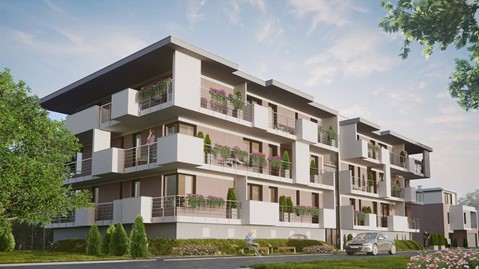
LATVIA
SMART URBAN LIVING: IMANTA GARDEN COMPLEX
Latvia has been selected as one of DECODITs four pilot sites to demonstrate and validate the project results for its Energy Services Company, one of the market players that complete the envisaged value-chain for exploitation of project results.
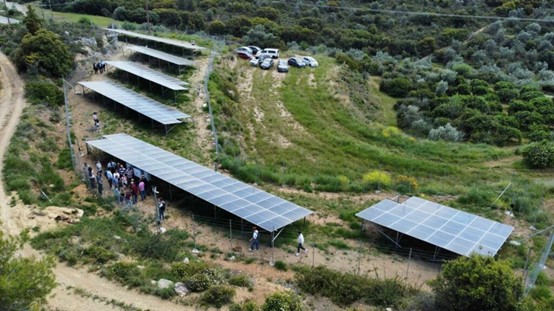
GREECE
COLLECTIVE ENERGY (CoEn) COOPERATIVES
DECODIT explores the interplay between existing EU and national regulatory frameworks, market designs, structures and products, as well as incentives for stimulating citizen investment toward future-proofing homes.
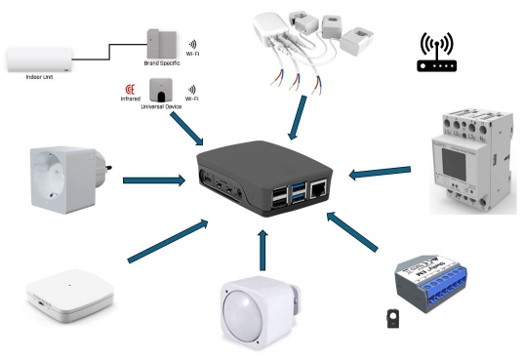
SPAIN
MURCIA RENEWABLE ENERGY COOP
During the demonstration activities in the Murcia region of Spain sets of community members will test different solutions for operational energy management related to flexibility extraction and valorisation. Another 25 households will test services related to decision support.
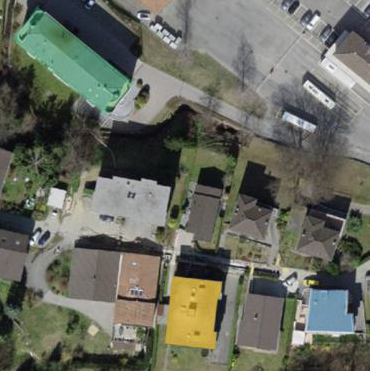
SWITZERLAND
ABT HUB
The ABT Hub comprises three multi-family buildings in the village of Capriasca. They are an integral part of the Arena Innovation Community (AIC), which was established in 2021 as a local energy community for self consumption of renewable energy sources (RES-e).
LATVIA
SMART URBAN LIVING: IMANTA GARDEN COMPLEX
Latvia has been selected as one of DECODITs four pilot sites to demonstrate and validate the project results for its Energy Services Company, one of the market players that complete the envisaged value-chain for exploitation of project results.

Located on the western part of Riga, Latvia, near the border with the neighboring city of Jurmala, you will find the Imanta Garden building. This area is known for being on the edge of the city’s urban environment, blending metropolitan convenience with access to natural landscapes.
The development, managed by RENESCO, was completed in 2019 and comprises a 3-storey building with 15 units, underground parking, and 4 townhouses, housing around 50 residents. and occupy a combined area of 3,157 square meters.
The fully occupied development, has a surface area of 3,157 square meters, accommodating young families who support top living quality standards and are proficient in utilising contemporary technologies for managing the building.

To ensure optimal usage of heat, each townhouse is designed with an independent natural gas boiler, and the apartment development is equipped with one natural gas boiler that is shared by all residents. Hot water is prepared in an accumulation tank and stored there for constant hot water access. Additionally, two of the townhouses have heat pumps (air to air). Their total energy needs are 92 kWh/m2 for the apartment building, and 95 kWh/m2 for the town houses.
Energy and water management
The apartments have an internal communication channel and a well-organised system for facilitating communication with external entities, such as the maintenance company. In contrast, the townhouses follow a slightly different approach as they are often rented out.
Smart electricity meters are installed in each dwelling and are managed and maintained by the maintenance company. Additionally, each apartment is installed with a meter to manage heating and hot water consumption. Every townhouse is equipped with individual meters for electricity, gas, and cold water.
Facility manager, RENESCO, and the residents, are invested in better understanding their energy consumption and how to optimise it. From recommendations for self-balancing to leveraging the increased predictability of individual load behaviour to flexibility offers under predefined contract terms.
GREECE
COLLECTIVE ENERGY (CoEn) COOPERATIVES
DECODIT explores the interplay between existing EU and national regulatory frameworks, market designs, structures and products, as well as incentives for stimulating citizen investment toward future-proofing homes. Greece has been selected as one of the four pilot sites to demonstrate and validate the project results due to it having a strong energy community.

The Greek pilot, which is led by Collective Energy (CoEn), is a non-profit energy community that includes 53 residences and small businesses housing about 100 citizens and two SMEs. The community are beneficiaries of the power produced by a 100kW solar photovoltaic plant via the virtual metering scheme. In addition, they collectively own a 3kWh and 10kWh energy storage system using Li-Ion batteries.
All households will be equipped with energy meters feeding real-time energy (sub)metering data.
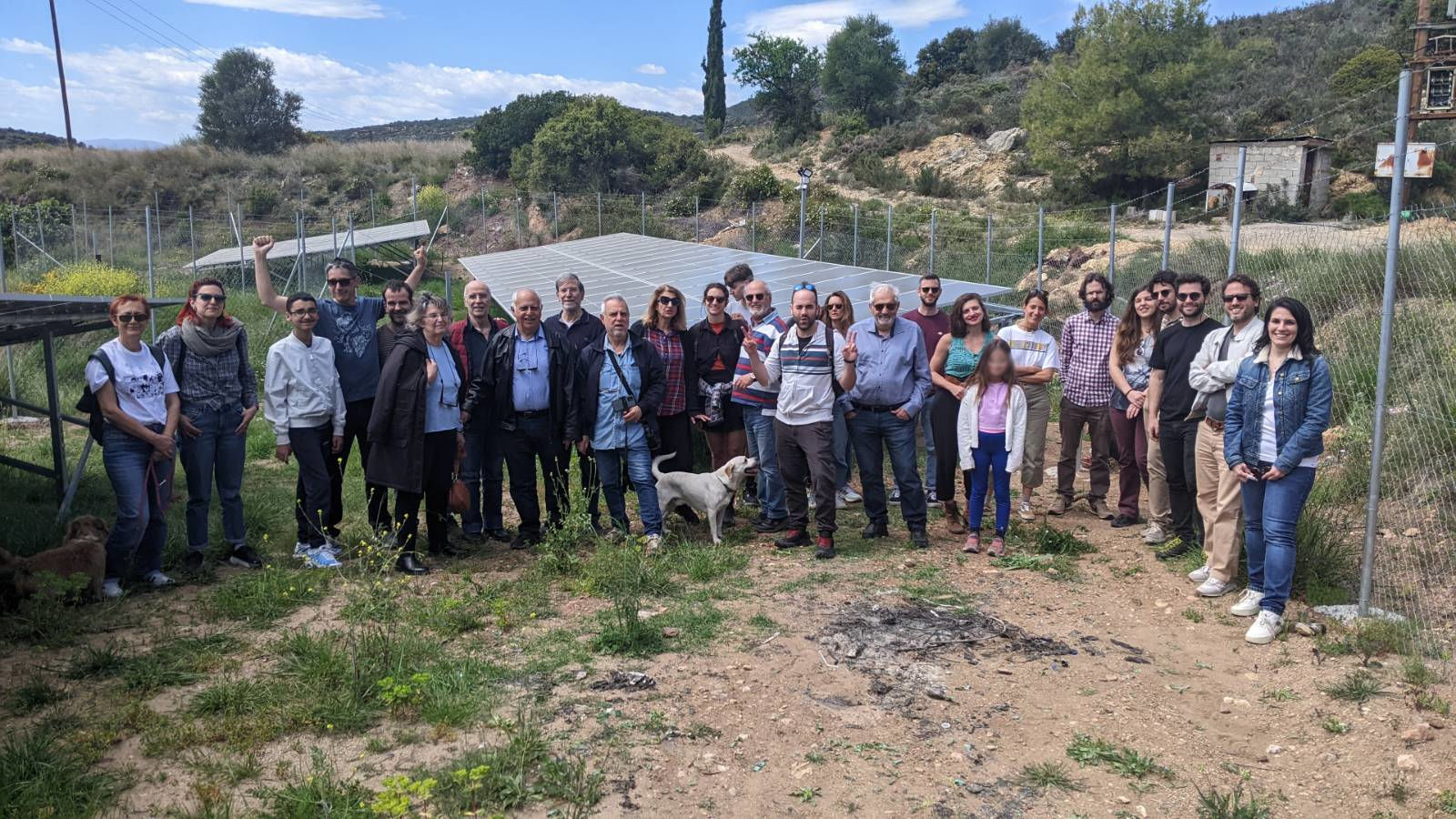
Households of active participants will be further instrumented with IR thermostats, smart relays, HVAC controllers, and more to enable testing of advanced building automation activities for energy saving.
The aim of CoEn is to unlock flexibility and explore new market opportunities, engage citizens and stakeholders, fostering the adoption of the concept of energy communities and their participation in the energy system. Additionally, the non-profit will perform social science studies regarding the social composition and characteristic of energy communities.
The vision for CoEn’s platform can be seen in the illustration below:

SPAIN
MURCIA RENEWABLE ENERGY COOP
The Spanish pilot site consists of several houses located in the Murcia region, in Southeast Spain, with a population over 1.5M inhabitants. The climate is Mediterranean, semi-arid with hot summers and mild winters. It will build on ongoing R&D activities, H2020 ACCEPT and HORIZON FlexCHESS, whose focus is to support energy communities by leveraging flexibility to maximise RES penetration and to enhance community financial viability.
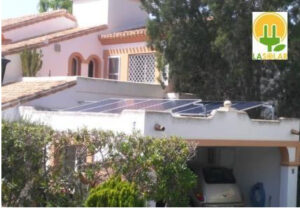
The main aim is to continue exploring residential flexibility potential and possible valorisation routes (self-consumption, cost savings, provision to markets), but also to test home retrofitting services to the benefit of member finances and well-being.
Energy/building infrastructure: The pilot site consists of homes covering a wide range of typologies, from apartments in multifamily buildings, to detached and semidetached houses.
The average residential consumption is estimated at 3,000 kWh. Most houses are equipped with HVAC units, either central duct heat pumps for the whole dwelling or individual splits for specific rooms, while few houses have dedicated heating systems, such as gas-powered or electrical radiators.
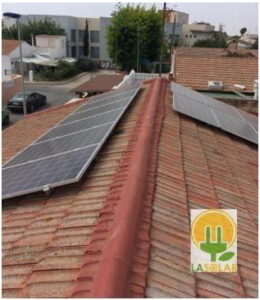
DHW needs are covered by electricity (55%), natural gas (40%) and solar (5%). Most homes are prosumers with a roof-top PV for self-consumption, with a generation capacity between 3-6 kW each. During the DECODIT demonstration activities, sets of community members will test different services.
The 25 dwellings (~50 citizens) participating in H2020 ACCEPT will continue testing solutions for operational energy management related to flexibility extraction and valorisation. Another 25 households will test services related to decision support to save energy costs and perform green retrofitting. All members will participate in co-creation activities, extensively use the Empowered Citizen App and provide recommendations for improvements.
SWITZERLAND
ABT HUB
The ABT Hub comprises three multi-family buildings in the village of Capriasca. They are an integral part of the Arena Innovation Community (AIC), which was established in 2021 as a local energy community for self consumption of renewable energy sources (RES-e). These structures play a pivotal role in the journey towards sustainability and the transformation of the energy landscape in the region.
The ABT Hub buildings were constructed in different periods, showcasing different level of renovation potential and possibility of installation of PV plants. They comprise 25 flats hosting ca. 50 residents and cover a total area of roughly 4,000 m2. Most dwellings cover their energy needs via electricity with a total annual consumption of 80,000 kWh.
The blue building is a 3-storey building (3 apartments) equipped with a 3.4 kWel air-to-water heat pump (plus backup 9 kWel electric resistance) with underfloor heating system built in the 2010s.
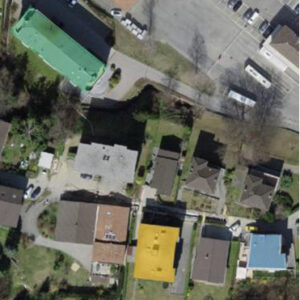
The estimated heating demand is 20,000 kWh/y and the electricity consumption is 20,000 kWh/y. The orange building is 4-storey building (6 apartments) connected to the local district heating system, built in the 1970s. The estimated heating demand is 110,000 kWh/y and the electricity consumption is 15,000 kWh/y. The green building is a 5-storey building (14 apartments and 4 commercial activities) built in the 1990s. It is connected to the local district heating network.
The estimated heating demand is 185,000 kWh/y and the electricity consumption is 45,000 kWh/y. The alternative renewable heat sources enable comparative analysis and benchmarking opportunities. This pilot site offers a compelling opportunity to investigate energy-efficient solutions across a range of residential buildings.
Ongoing community building and Living Lab activities: During H2020 ACCEPT, a Living Lab has been established in the ABT Hub. Thematically it has been focused on energy management and demand response. As a result, residents have created a local energy community and also gained valuable insights into the crucial topics sustainability and the energy transition.
In terms of demographics, decision makers for household energy affairs are almost balanced in gender, they are typically over 35 years old, and have a variety of educational and energy literacy levels. The existing Living Lab will be maintained and enhanced to serve the purposes of DECODIT.
IT infrastructure: Pilot buildings have smart metering infrastructure (real-time, 15-min intervals), as part of AEM’s AMI and 2 years of historical data is available. IoT systems already deployed during H2020 ACCEPT (gateways, (sub)meters, actuators, sensors, etc.) will be exploited further to bootstrap DECODIT activities. In addition, HIVE has developed a web-based monitoring tool for citizens and the community manager, which shows energy consumption and generation, split between internal and external flows, along with dynamic energy prices and resulting revenues/costs.
